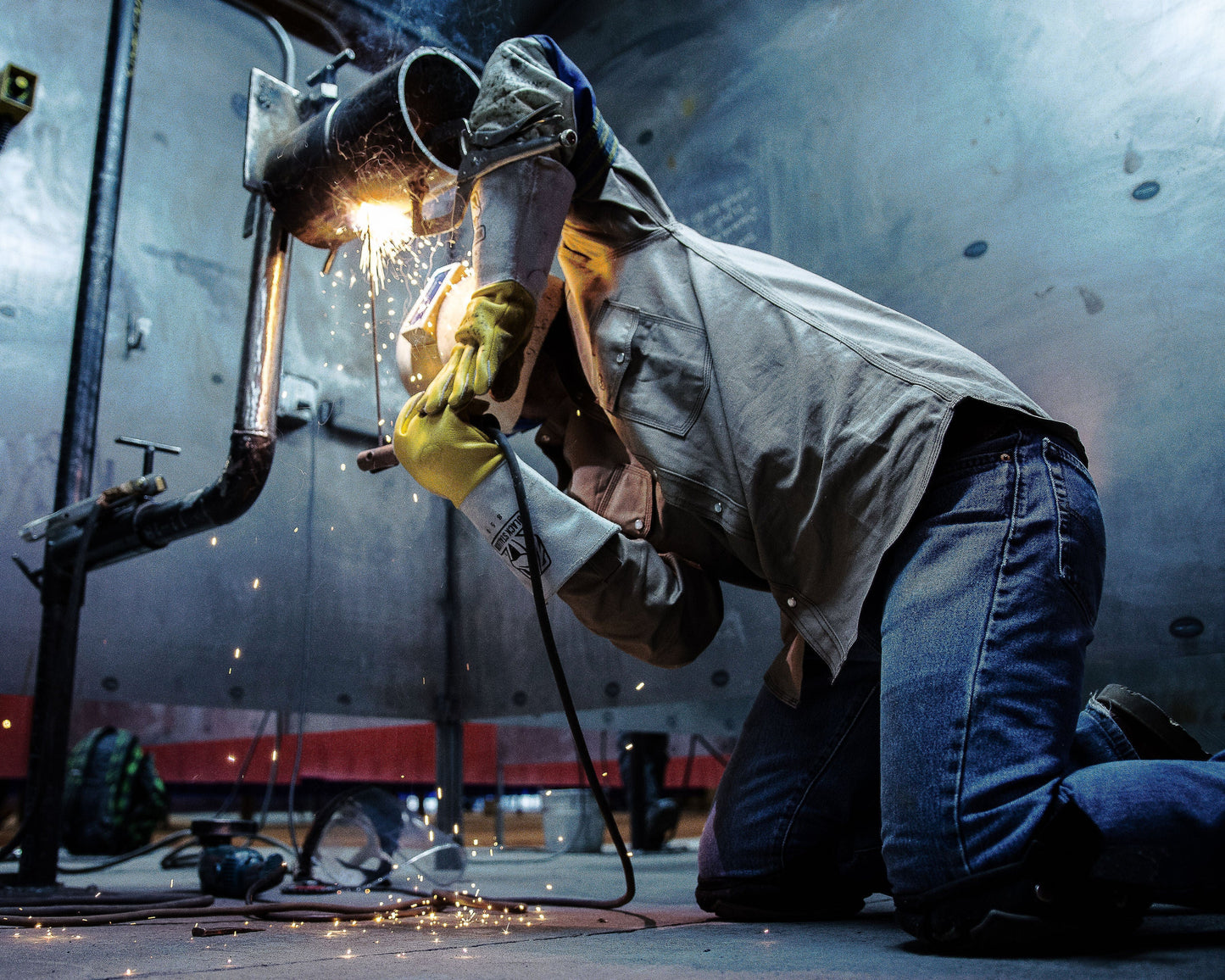OUR MISSION
Our Goal is to Revive Blue Collar Work and educate the youth on why Blue Collar is the way to go and take away any stigma held by Blue Collar Workers through education and fully supporting the trades.
Here are 5 Benefits of Working in the Skilled Trades and attending trade school over regular college.

1. Trade School is cheaper and shorter
One of the biggest benefits to working in the skilled trades is the education required. While there are many positives to going to 4 years of school for a bachelor’s degree, there are also a few big negatives, including cost. Since 1990, tuition costs have risen over 300%, far outpacing the growth of the economy. When costs rise at 7-8% per year, while inflation grows 2-3% per year, you end up with a product that becomes unaffordable. For many folks, though, that unaffordability isn’t standing in the way, because student loans are easy to come by. Because of that, about 2/3 of students with bachelor’s degrees are leaving college with debt that averages $26,000 per student. All in all, your average bachelor’s degree is likely going to cost you over $100,000 — closer to $150k if completely financed through loans. The vast majority of training programs for the skilled trades, on the other hand, last from 6 months to 2 year, and will cost just over $30,000. Even if that cost is entirely financed by student loans, you're looking at a total of $40,000, which is still a savings of $110K.

2. Compensation: Trades Jobs Are Well-Paying
Take a look at start out pay up to experienced on just a few Blue Collar trades
Welders: $50K - $200K
Electrician $40K-$120K
Plumber $40K - $80K
Lineman $40K - $200
Mechanic $ 38K - $85K

3. Job Security: The Skilled Trades Can’t Be Outsourced
The trades simply cannot be outsourced. While the world may not always need bloggers, it will always need mechanics, electricians, plumbers, welders, etc. When you’re locked out of your house, you won’t phone a customer service line and deal with robots trying to resolve your issue, you’ll call a locksmith. The roads and bridges in this country will always be built here. Our skyscraper projects won’t be constructed in France and shipped over. While jobs in the information/tech/customer service sectors can always be shipped away, the careers that require literal hands-on work cannot be.
One of the points that Mike Rowe hammers wrote in his book, Profoundly Disconnected, is that Americans are disconnected from the things that keep our lives and society running on a daily basis. Without the trades, our society would literally crumble. Roads/bridges would go into disrepair. Cars would break down and not be fixed, and new cars wouldn’t be made to replace them. Our electrical grid would shut down and we’d lose power. Plumbing would break down or back up, and we’d all be swimming in our own waste. Not a pretty picture, is it? It may seem sort of dystopian, but in fact our infrastructure is falling apart before our eyes.

4. Availability: There Are Plenty of Jobs For the Taking
Trades jobs are not only very secure, there’s a whole lot of openings for them as well.
The skills gap here in America – the state of having more jobs available than workers who are trained and able to take those jobs. A big part of that reality is simply that there are more tradesmen retiring than entering the field. Among all jobs in the US, workers aged 25-44 make up about 48% of the workforce; among skilled trades jobs that number is 46%, a mere 2-point difference. When you look at the 45-54 age range the picture is very different. That group makes up 23% of the general workforce, but 32% of skilled trades, meaning that millions more tradesmen will be retiring in the next 15 years than white collar professionals.
For the blue collar worker, there are jobs to be had. They may not be in your city of choice, but that’s a reality faced by much more than just tradesmen. Certain industries flock to certain geographical regions (show biz and Hollywood, fashion and NYC, etc.), so to be successful you may have to move. According to some estimates , there are literally millions of unfilled jobs right now in the skilled trades, with many more to be created in the years to come.
All over the country, the skilled tradesman is in demand.

5. Intangibles: The Satisfaction of Blue Collar Work
The number one factor in overall job satisfaction is being able to use your skills and abilities. It was in 2012 when that factor overtook job security for the first time, just four years removed from the economy crashing. People are quickly discovering that feeling happy and fulfilled at work is incredibly important.
Do you want to spend 40 years of your life bored and dissatisfied for most of your day? Obviously not. But that’s what 70% of Americans feel at work, with highly educated people actually being more likely to be disengaged with their workplace. While boredom can obviously happen at any job, the tradesman who’s working with his hands all day simply has less opportunity for disengagement, as boredom at work often happens when there just isn’t enough to do. Idleness is not often a problem for the blue collar man.
